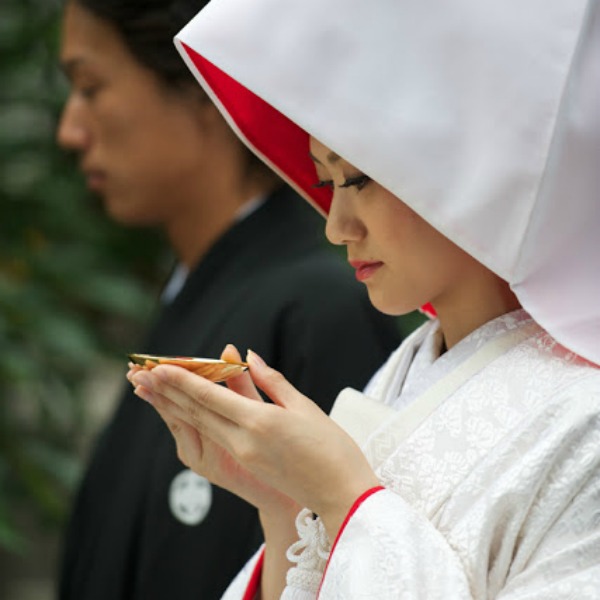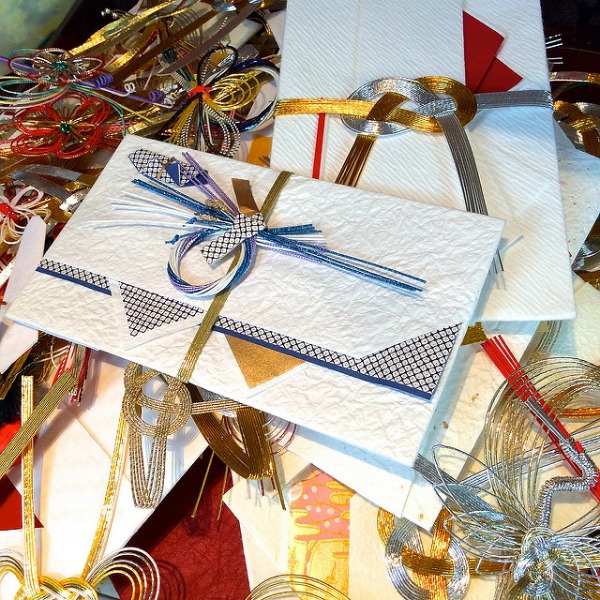Despite most Japanese wedding ceremonies follow a more western tradition these days, we’ve discovered five charming Japanese wedding traditions you may not have know about.
Table of Contents
1. San San Kudo
The traditional Japanese ceremony both in the Shinto and Buddhist faith include this cultural sake-sharing tradition at their weddings. The Japanese ritual of San San Kudo, is rich with symbolism. San means three, Ku means nine, and Do means to deliver. It is performed by the bride and groom and both sets of parents. Each person takes three sips of sake from three different sake cups called Sakazuki. The first three sips are representations of each set of couples, the second human flaws of hatred, passion and ignorance and the third means release from these flaws. In exchanging cups the couple are symbolically exchanging their vows.

Image via : For Your Japan
2. Honouring the Parents
Time is given during the wedding to specifically honour the parents. In some weddings the parents will be gifted flowers, or a personal letter of thanks. Honouring the parents is considered of utmost importance in Japanese tradition.
3. Wedding Wardrobe
Traditionally a Japanese bride will have two outfits: the Shiro for the ceremony and the Uchikake for the wedding reception. The Shiro is traditionally a white kimono and the Uchikake is a brightly coloured kimono. Her hair is worn in a bun with colourful accessories. Often the bride will wear a white hood and geisha-like makeup to the ceremony and more natural look for the reception.

Image via : M’S ONE Beauty and Bridal Salon
4. Speeches
Speeches are a given at most weddings across the globe, but Japanese weddings have many speeches and blessings. Family, friends, colleagues stand up one by one to congratulate the couple. Traditionally, speeches involve moralistic stories about the importance of marriage.
5. Gifts
Just like a traditional western wedding, gifts are given to the parents and bridal party. In Japanese tradition the bride and groom give gifts to their wedding guests as a display of the family’s wealth. Couples may spend from $30 to $80 on favours, called Hikidemono and might include fancy tableware or expensive desserts. Guests in turn are expected to give a gift of money, usually in specifically designed beautifully elaborate envelopes tied with symbolic knots called Mizuhiki.

Image via : Sequins and Cherry Blossoms
You may also like:
5 Things You Need to Know if You’re Marrying Someone from a Different Background